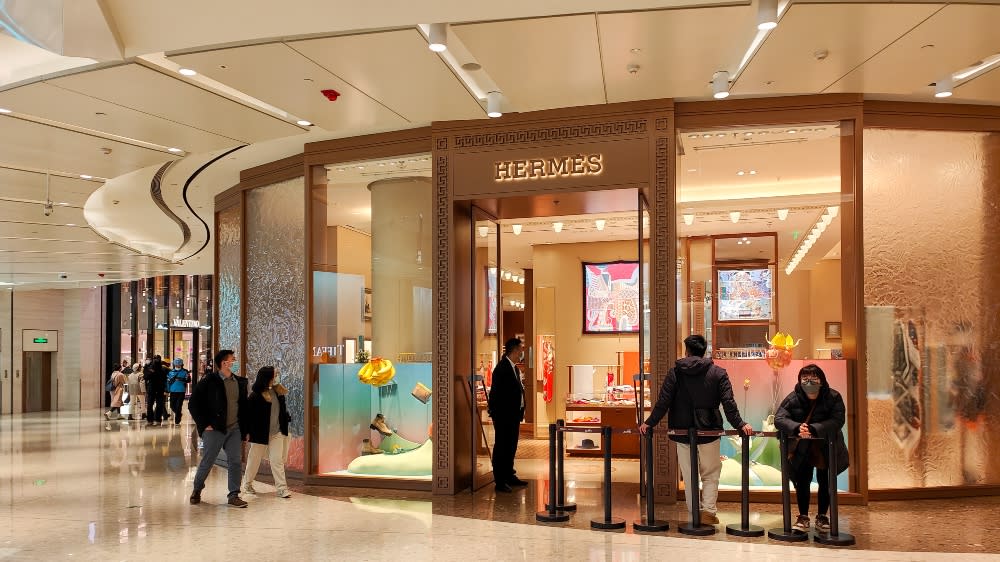Chinese Shoppers Haven’t Returned to Europe for Luxury Goods, Even as Covid Restrictions Relax

Last month, China began rolling back the country’s Covid-19 restrictions, allowing citizens to resume some leisure travel. It’s the first time the government has relaxed its Zero-Covid policies since the start of the pandemic in 2020. Luxury brands are hoping to capitalize on Chinese tourists looking for revenge travel, but these shoppers may not be so quick to return to cities like Paris or Milan.
When the China’s lockdown was first put in place, it ended a wave of Chinese tourists visiting international capitals to splurge on designer brands. Before the viral outbreak in early 2020, Chinese shoppers bought 70 percent of their luxury goods abroad in tourist-driven destinations like Paris, Milan and New York. According to consultancy group Bain & Co., China will become the biggest luxury market in 2023—and many brands in the sector will be looking for eager Chinese tourists amid an expected financial downturn.
More from Robb Report
“Most luxury brands were bracing for a very steep V-shaped recovery in sales in mainland China after the end of the Shanghai and Beijing lockdowns, which affected the business in the spring,” Erwan Rambourg, global head of consumer and retail research at HSBC, told the New York Times. “Apart from Hermès and Moncler, who experienced strong growth in the market, the rest of the sector has seen very muted growth or— more commonly—no growth at all.”
However, a lot has changed since the start of the lockdown. Two years have passed and shopping habits have changed with it, including a domestic boom for the country’s luxury market, which doubled to $68 billion between 2019 to 2021. Local shopping destinations like Hainan have seen a sharp increase in visitors as well. The area accounted for 13 percent of the country’s domestic luxury spending—more than double its pre-pandemic figures.
While many international destinations have already relaxed their travel restrictions, many Chinese tourists are opting to stay within Asia. Among Chinese travelers, the top five destinations booked when the regulations fell were Singapore, Japan, Thailand, South Korea and Hong Kong. All of this has some industry analysts questioning whether Chinese shopping abroad will ever return to pandemic levels.
“It won’t go back to 70 percent,” Shanghai-based Jonathan Yan, a principal at consultancy Roland Berger told Reuters. “I’m sure there will still be a portion of luxury spending happening in other countries because it’s natural for people to shop when we travel, but it will be more like 50-50.”
Whether Chinese tourists will return to international destinations in the spring and summer remains to be seen. For their part, luxury brands in Europe and the US will be crossing their fingers.
Sign up for Robb Report's Newsletter. For the latest news, follow us on Facebook, Twitter, and Instagram.
Solve the daily Crossword

